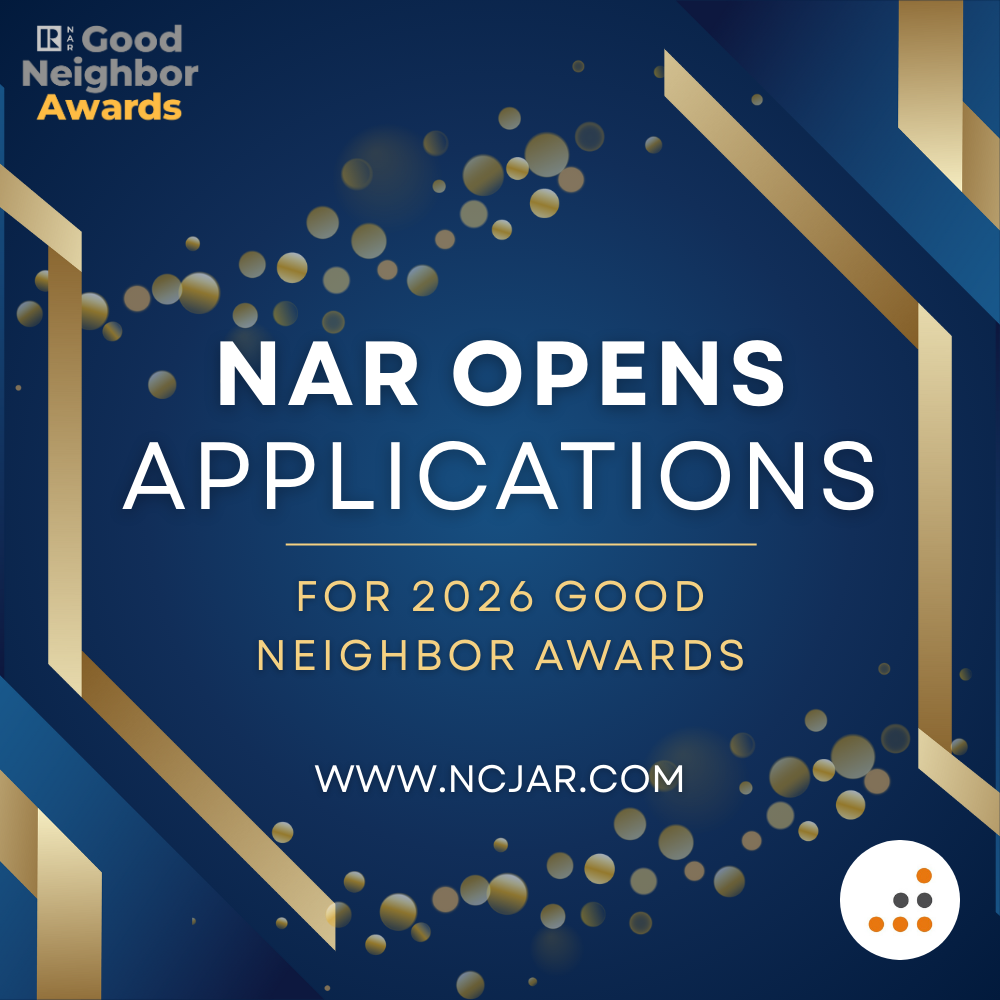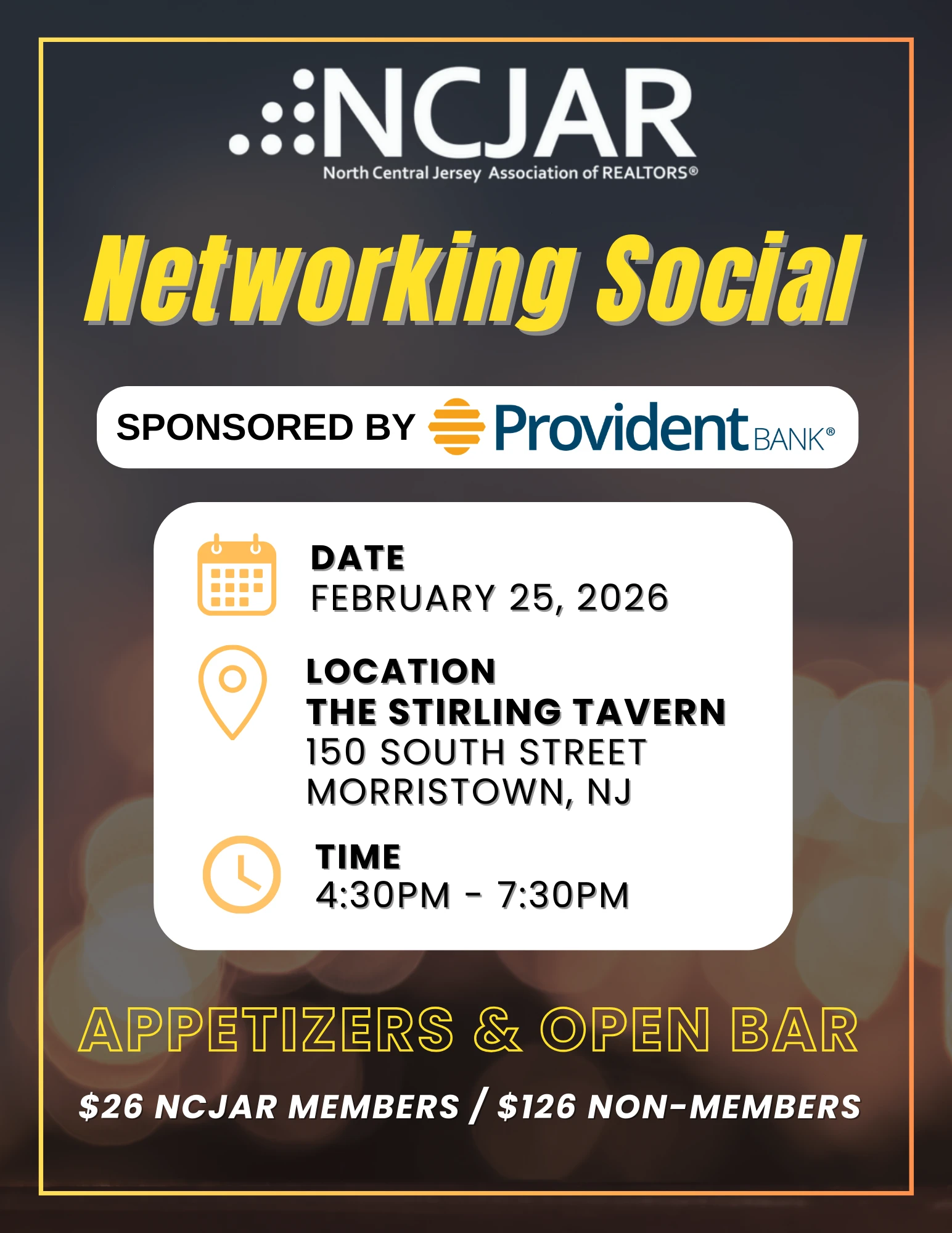NCJAR News
 Members encouraged to nominate a colleague or self-nominate to spotlight community impact
Members encouraged to nominate a colleague or self-nominate to spotlight community impact
CHICAGO (February 3, 2026) – The National Association of REALTORS® announced the opening of applications for its 2026 Good Neighbor Awards today. The program honors real estate agents who demonstrate exceptional dedication to volunteer service and have lasting impacts on their communities.
“Service is at the heart of what it means to be a REALTOR®,” said NAR President Kevin Brown. “The Good Neighbor Awards recognize members who strengthen neighborhoods, support families and help communities thrive through volunteer service. We are excited to see the nominations and celebrate the impact REALTORS® are making every day.”
Five winners will each receive a $10,000 grant for their nonprofit organization and be honored in November at NAR NXT, The REALTOR® Experience, in New Orleans. Additionally, five honorable mentions will each receive a $2,500 grant.
 Join NCJAR for a lively Networking Social at The Stirling Tavern on Wednesday, February 25, 2026, from 4:30 PM to 7:30 PM in Morristown.
Join NCJAR for a lively Networking Social at The Stirling Tavern on Wednesday, February 25, 2026, from 4:30 PM to 7:30 PM in Morristown.
This relaxed and energetic evening is the perfect opportunity to connect with fellow real estate professionals, build meaningful relationships, and unwind after the workday. Enjoy delicious appetizers, an open bar, and great conversation in a welcoming atmosphere.
As part of our commitment to giving back, attendees are encouraged to bring a non-perishable food item to support our community food drive.
Pricing
• NCJAR Members: $26
• Non-Members: $126
 Celebrate your office’s success and spotlight your top-performing agents with a Circle of Excellence Broker Advertisement in the official NCJAR® 2025 NJR® Circle of Excellence Sales Award® digital program.
Celebrate your office’s success and spotlight your top-performing agents with a Circle of Excellence Broker Advertisement in the official NCJAR® 2025 NJR® Circle of Excellence Sales Award® digital program.
This exclusive opportunity allows brokers to honor their award recipients while showcasing their brand during one of New Jersey real estate’s most prestigious events.
What’s Included
-
Full-page digital advertisement for just $200
-
Your ad displayed on screens at The Venetian during the Circle of Excellence Sales Award® Gala
-
Online exposure through the digital awards program
-
A meaningful way to recognize your agents and reinforce a culture of excellence
Ad Specifications
 NCJAR invites you to an unforgettable evening of celebration, connection, and recognition at the 2025 NJR® Circle of Excellence Sales Award® Gala on Thursday, March 19, 2026, from 5:30 PM to 9:30 PM at The Venetian in Garfield, NJ.
NCJAR invites you to an unforgettable evening of celebration, connection, and recognition at the 2025 NJR® Circle of Excellence Sales Award® Gala on Thursday, March 19, 2026, from 5:30 PM to 9:30 PM at The Venetian in Garfield, NJ.
This signature event honors NCJAR’s 2025 NJR® Circle of Excellence Sales Award® recipients—exceptional real estate professionals whose achievements set the standard for excellence in our industry. Whether you’re being recognized, supporting colleagues, or simply looking to connect with leaders in real estate, this is an event you won’t want to miss.
An Evening to Remember
Guests will enjoy:
-
An open bar and passed hors d’oeuvres
-
A buffet dinner and dessert
-
Entertainment by a DJ
-
Professional red-carpet photography